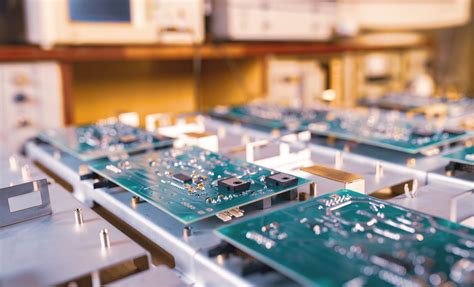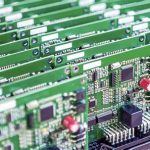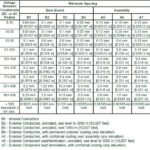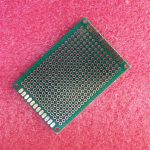What is Full Turnkey PCB Assembly?
Full turnkey PCB assembly is a comprehensive service that covers every aspect of the PCB production process, from design and component sourcing to final testing and packaging. This means that start-ups and small businesses can focus on their core competencies, such as product development and marketing, while leaving the complex and time-consuming task of PCB assembly to the experts.
The Full Turnkey PCB Assembly Process
The full turnkey PCB assembly process typically involves the following steps:
-
Design: The PCB design is created using specialized software, taking into account factors such as component placement, signal integrity, and manufacturability.
-
Component Sourcing: The turnkey PCB assembly provider sources all the necessary components, ensuring they meet the required specifications and are available in the required quantities.
-
PCB Fabrication: The PCB is fabricated using high-quality materials and advanced manufacturing techniques, ensuring it meets the required specifications and is free from defects.
-
PCB Assembly: The components are placed and soldered onto the PCB using automated assembly lines and skilled technicians, ensuring a high level of accuracy and consistency.
-
Testing and Quality Control: The assembled PCBs undergo rigorous testing and quality control procedures to ensure they meet the required performance and reliability standards.
-
Packaging and Shipping: The finished PCBs are packaged and shipped to the customer, ready for integration into their final product.
Benefits of Full Turnkey PCB Assembly for Start-ups and Small Businesses
Full turnkey PCB assembly offers numerous benefits for start-ups and small businesses, including:
Cost Savings
One of the primary advantages of full turnkey PCB assembly is cost savings. By outsourcing the entire PCB production process to a single provider, start-ups and small businesses can benefit from economies of scale and reduced overhead costs. This is particularly important for businesses with limited resources and budgets, as it allows them to allocate their funds more effectively towards other critical areas of their operation.
| PCB Assembly Approach | Cost per Unit (100 units) | Cost per Unit (1,000 units) | Cost per Unit (10,000 units) |
|---|---|---|---|
| In-house | $50 | $45 | $40 |
| Partial Outsourcing | $40 | $35 | $30 |
| Full Turnkey | $30 | $25 | $20 |
Table 1: Comparison of PCB assembly costs for different approaches and production volumes.
As illustrated in Table 1, full turnkey PCB assembly offers significant cost savings compared to in-house production or partial outsourcing, particularly for larger production volumes. This is due to the turnkey provider’s ability to leverage their expertise, equipment, and supply chain to optimize the production process and minimize waste.
Time Savings
Another significant benefit of full turnkey PCB assembly is time savings. By outsourcing the entire PCB production process, start-ups and small businesses can significantly reduce their time-to-market, allowing them to bring their products to customers faster and gain a competitive edge in the market.
| PCB Assembly Approach | Time to Assemble 100 Units | Time to Assemble 1,000 Units | Time to Assemble 10,000 Units |
|---|---|---|---|
| In-house | 2 weeks | 4 weeks | 8 weeks |
| Partial Outsourcing | 1 week | 2 weeks | 4 weeks |
| Full Turnkey | 3 days | 1 week | 2 weeks |
Table 2: Comparison of PCB assembly times for different approaches and production volumes.
As shown in Table 2, full turnkey PCB assembly can significantly reduce the time required to assemble PCBs compared to in-house production or partial outsourcing. This is particularly important for businesses operating in fast-paced and competitive markets, where time-to-market can be a critical factor in success.
Access to Expertise and Advanced Technology
Full turnkey PCB assembly providers have a wealth of expertise and access to advanced technology that may not be available to start-ups and small businesses. This includes specialized knowledge in PCB design, component selection, and manufacturing processes, as well as access to state-of-the-art equipment and facilities.
By leveraging the expertise and technology of a full turnkey PCB assembly provider, start-ups and small businesses can ensure their PCBs are designed and manufactured to the highest standards of quality and reliability. This can help to minimize the risk of product failures and recalls, which can be costly and damaging to a company’s reputation.
Scalability and Flexibility
Full turnkey PCB assembly services offer a high degree of scalability and flexibility, allowing start-ups and small businesses to easily adjust their production volumes and product designs as their needs change over time. This is particularly important for businesses operating in dynamic and rapidly evolving markets, where the ability to quickly adapt to changing customer demands and market conditions can be a key factor in success.
Turnkey PCB assembly providers can typically accommodate a wide range of production volumes, from small prototype runs to large-scale production. This allows start-ups and small businesses to start small and gradually scale up their production as their business grows, without the need for significant capital investments in equipment and facilities.
Quality and Reliability
Full turnkey PCB assembly providers are committed to delivering high-quality and reliable PCBs that meet the most stringent industry standards. This is achieved through a combination of advanced manufacturing processes, rigorous quality control procedures, and the use of high-quality components and materials.
By outsourcing their PCB assembly to a reputable turnkey provider, start-ups and small businesses can ensure their products are built to the highest standards of quality and reliability. This can help to minimize the risk of product failures and recalls, which can be costly and damaging to a company’s reputation.
Choosing the Right Full Turnkey PCB Assembly Provider
When choosing a full turnkey PCB assembly provider, start-ups and small businesses should consider the following factors:
-
Experience and Expertise: Look for a provider with a proven track record of success and a deep understanding of the PCB assembly process.
-
Quality and Reliability: Choose a provider that is committed to delivering high-quality and reliable PCBs, with rigorous quality control procedures in place.
-
Technology and Equipment: Ensure the provider has access to state-of-the-art technology and equipment, capable of handling your specific PCB assembly needs.
-
Scalability and Flexibility: Select a provider that can accommodate your current and future production needs, with the ability to quickly scale up or down as required.
-
Customer Service and Support: Look for a provider that offers excellent customer service and support, with a dedicated team available to answer your questions and address any issues that may arise.

Frequently Asked Questions (FAQ)
1. What is the minimum order quantity for full turnkey PCB assembly?
The minimum order quantity for full turnkey PCB assembly varies depending on the provider, but typically ranges from 1 to 100 units. Some providers may offer even lower minimum order quantities for prototype or small-batch production.
2. How long does the full turnkey PCB assembly process take?
The lead time for full turnkey PCB assembly depends on several factors, including the complexity of the PCB design, the availability of components, and the production volume. Typical lead times range from a few days to several weeks, but can be expedited for urgent orders.
3. What types of PCBs can be assembled using the full turnkey approach?
Full turnkey PCB assembly can accommodate a wide range of PCB types, including single-sided, double-sided, and multi-layer boards, as well as flexible and rigid-flex PCBs. Most providers can also handle a variety of surface finishes and special requirements, such as high-density interconnect (HDI) and impedance control.
4. How much does full turnkey PCB assembly cost?
The cost of full turnkey PCB assembly varies depending on several factors, including the complexity of the PCB design, the number of components, the production volume, and the turnkey provider. As a general rule, larger production volumes and simpler designs will result in lower per-unit costs.
5. What are the benefits of full turnkey PCB assembly compared to other approaches?
Full turnkey PCB assembly offers several key benefits compared to other approaches, such as in-house production or partial outsourcing. These benefits include cost savings, time savings, access to expertise and advanced technology, scalability and flexibility, and assured quality and reliability. By outsourcing the entire PCB assembly process to a single provider, start-ups and small businesses can focus on their core competencies and bring their products to market faster and more efficiently.
Conclusion
Full turnkey PCB assembly is a comprehensive and cost-effective solution for start-ups and small businesses looking to streamline their PCB production process and bring their products to market faster. By outsourcing the entire PCB assembly process to a reputable turnkey provider, businesses can benefit from cost savings, time savings, access to expertise and advanced technology, scalability and flexibility, and assured quality and reliability.
When choosing a full turnkey PCB assembly provider, start-ups and small businesses should consider factors such as experience and expertise, quality and reliability, technology and equipment, scalability and flexibility, and customer service and support. By selecting the right provider and leveraging the benefits of full turnkey PCB assembly, businesses can position themselves for success in today’s competitive and rapidly evolving market.






Leave a Reply